SUMMARY
This is AI generated summarization, which may have errors. For context, always refer to the full article.

 Christmas is often touted as the most wonderful time of the year, but for most adults, it’s just an enormous source of stress. And of all the factors that contribute to holiday stress, gift-giving is usually the biggest.
Christmas is often touted as the most wonderful time of the year, but for most adults, it’s just an enormous source of stress. And of all the factors that contribute to holiday stress, gift-giving is usually the biggest.
The physical and financial burdens of purchasing, packaging and delivering presents are stressful enough, but there are mental and emotional stressors involved in the process as well. It’s a pity, because gift-giving can and should be a positive, uplifting experience – which when done with the right motivation, can actually benefit the giver more than the receiver.
Studies have shown that gift-giving actually activates the part of the brain associated with receiving rewards, and that people who spend money on others are typically happier than those who spend it on themselves.
Hmm. Interesting. If that’s the case, then why does the process of holiday gift-giving often feel like a journey into the INNER DEPTHS OF HELL???
It’s probably just because we’re not doing it right. To remedy that, here are a few tips on how to take the hassle out of holiday-shopping.
1. Stop cramming.
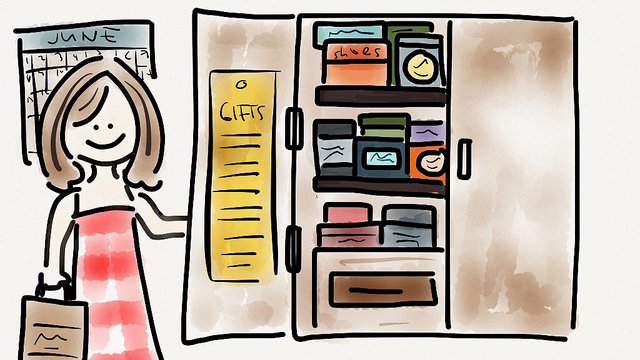
I realize that at this point it may be a little too late for this tip, but I think it bears repeating – as often as possible. STOP CHRISTMAS CRAMMING!
I’m a huge advocate of Christmas shopping all year round. Not only does it allow you to plan and pick presents at leisure; it also staggers your spending so that you don’t end up breaking the bank in December.
If you’re the type who swears to start shopping earlier every year – only to fail miserably and end up zooming around like a Tasmanian devil come Christmastime, here’s a tip: Start a gift closet.
Clear out a closet at home and stick your Christmas list on the door. Every month, aim to cross out a few gifts on that list and store your purchases in the closet. By the time Christmas comes around, you’ll feel like a champ and actually be able to enjoy all the revelry for a change.
2. Come up with a Christmas spend formula.
The biggest downside of Christmas cramming is that we usually end up spending so much more than we planned. The solution to this is simple: Set a budget and stick to it.
I recently came across an interesting formula for how much to spend on Christmas gifts, taking into account your financial situation and your closeness to the recipient. It goes like this:
(Average spend) – (Financial Situation) x (Closeness) = Christmas Spend
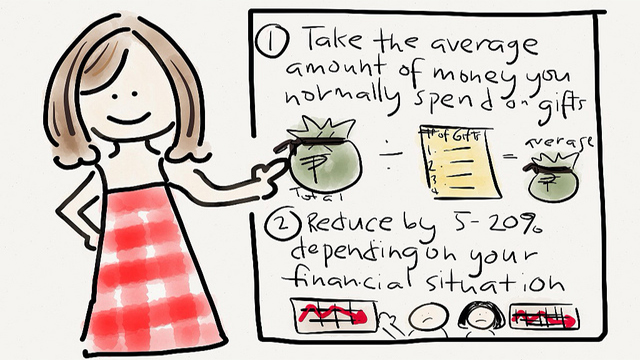
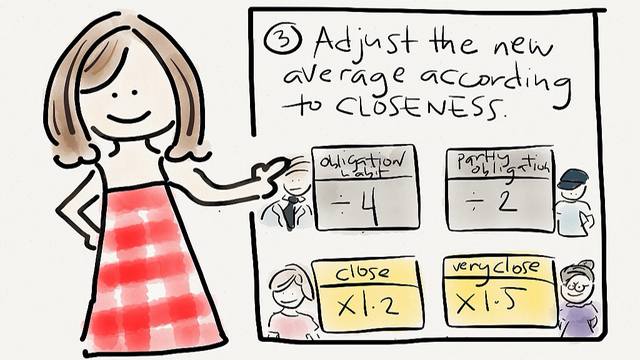
I think we all already carry some similar but vague version of this formula in our heads, but it’s easier to follow when you actually write it down and set specific amounts. You don’t have to follow this formula exactly, but you can use it as a guide to come up with a formula and budget of your own.
3. Stop surprising people. Just ask them what they want.
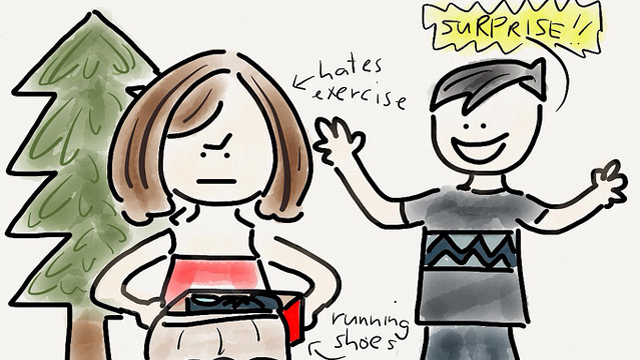
That’s right. Surprise! Surprises aren’t always as great as you think they are. In fact, surprise gifts can often be the cause of unnecessary resentment in relationships. You may already know this from your own experience of feigning appreciation for surprise gifts that sucked – but there’s actually research to back it up.
Dr. Devin A. Byrd of the Department of Behavioral Sciences at South University-Savannah says that gifts can bring on feelings of negativity for both the giver and recipient when expectations are not met. This is always a risk when you decide to spring a surprise on anyone.
Five studies cited in the Journal of Experimental Social Psychology show that although most gift-givers assume that recipients will be equally (or even more) appreciative of surprise presents, recipients actually prefer gifts that they explicitly asked for.
So basically, a surprise gift has the potential to be a double-bummer: both for the recipient, who would’ve preferred something else, and for the giver, who expected a joyful squeal instead of a fake smile and dead eyes.
Giving people exactly what they want isn’t always possible, of course, but it can go a long way towards avoiding gift-related stress in the relationships that you can apply it to. It also eliminates all the guesswork, which is agonizing in itself.
If budget constraints make this type of gift-giving difficult, ask for a wish list and choose from among the options provided. You might actually find that the gift a person REALLY wants is much more affordable than the gift you were planning to get.
4. Forget reciprocity. Give because it feels good.
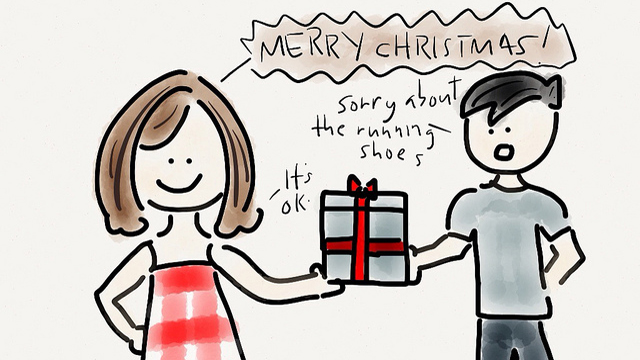
Perhaps the most difficult — but also the most rewarding — way to hassle-proof the holidays is to simply change your mindset. Remember that at the heart of it all, holiday gift-giving is about celebration and appreciation – not obligation.
Don’t give gifts because you feel you have to. Give them because you want to. It doesn’t really matter if you don’t get a gift back, or if the gift that you do get is just one step up from a lump of coal.
The real joy is found in the giving, not the receiving. And the opportunity to manifest gratitude is a gift in itself.
Here’s to happy (and hopefully hassle-free) holidays! – Rappler.com
Add a comment
How does this make you feel?
There are no comments yet. Add your comment to start the conversation.